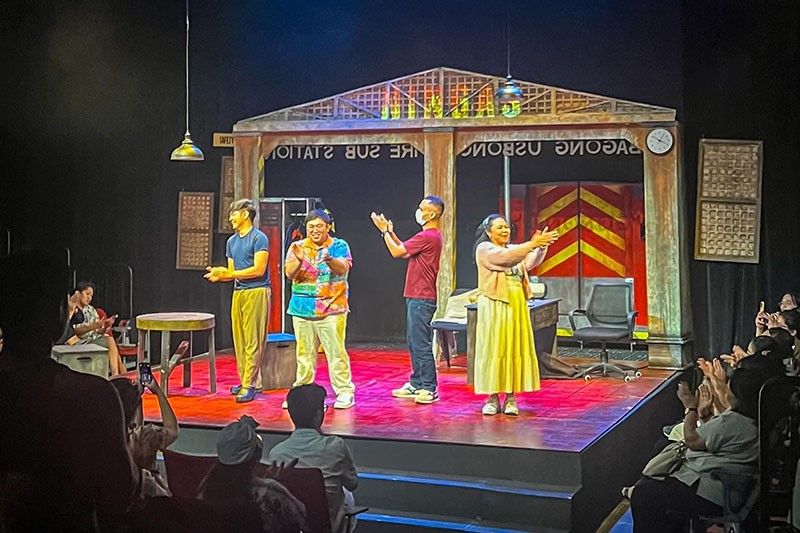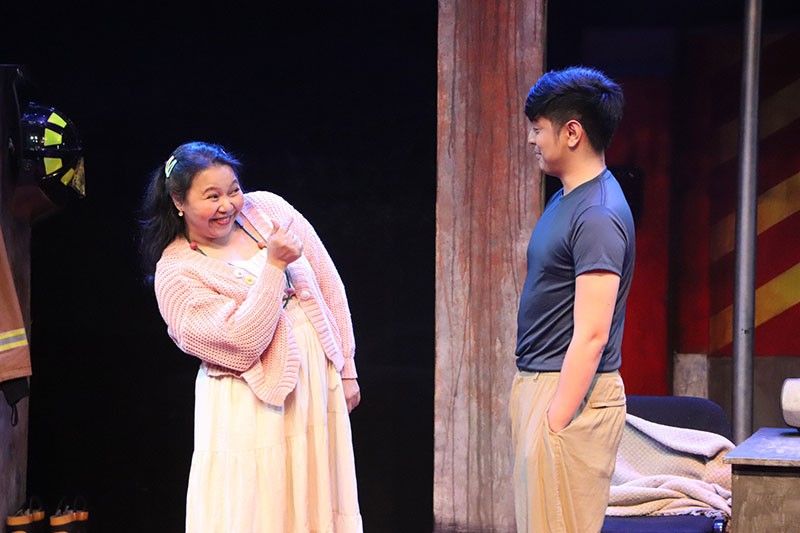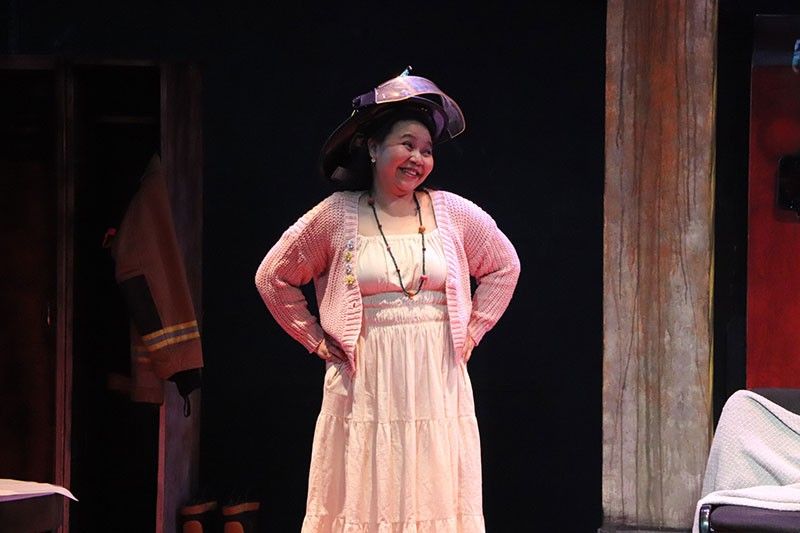Ningas: What’s in a name?


When parents give a name to their newborn, it is not only a name that they gift their child with. They also give their baby an identity, dignity, honor.
Accountability is a daunting task but parents, in an ideal setup, make it their covenant to fulfill their obligations to their children. The ideal setup is the principle that comes with parenting. The same standard, although told in a whimsical, imaginative style, was presented in Ningas, a one-act play shown at the recently concluded 19th Virgin Labfest at the Cultural Center of the Philippines.
Ningas, which means fire, ignited from start to finish with an engrossing script and gripping direction almost beholden to the existentialist Jean-Paul Sartre. From Lino Balmes’ sharply sewn script that casts the spell of magical realism comes a hyperrealist interpretation onstage by theater director BJ Borja. Balmes enters the realm of imagination within imagination, what with characters in a situation where the future father was younger than his future daughter. Borja played along and with full understanding of the material, presented a no-nonsense play that bridged reality to the unknown all at once.
Within the seeming simplicity of the narrative of the 45-minute play is the complexity of its discourse. Ningas is a dissertation for people contemplating to become parents because bringing a child into the world is not only a question of responsibility but also a question of morality.

“Bigyan mo ako ng pangalan,” pleads the woman to a man in a contemplative mood in a fire station. He is a fireman, his bunker gear ready on the set, signaling that he is ready to respond if ever the fire siren alarms, ready to save lives.
But he is not ready to answer the pleading of the woman who, from literally nowhere, presents herself as his daughter. He is not ready — or not at all interested to give her a name. And to give a name, as the play positions it, is to give a life.

In an ingenious weaving of words and thoughts, Ningas is a philosophical discourse about life. Like fire, should life be kindled or never be conceived at all? And in between is an exploration of the joys and pain of life and living.
What if one does not want to become a parent? Does it make one less of a man? Is the fear of responsibility to give birth to a life knowing that the same life will face uncertainties — experiencing hunger, facing defeat, getting hurt or brokenhearted, confronting painful death — valid?

The future daughter in the play counters: “Labas na dapat sa usapan natin kung masakit ang pagkamatay ko. Mamatay ako at mamatay ka dahil mamatay ang lahat nang nabigyan ng buhay.”
Ningas is a gospel of life and death, sounding like the modern verse in the Book of Ecclesiastes. God is not discussed in the play but His presence is omnipresent in the actions and decisions formulated in the script.
“Responsibilidad ko ang lahat nang mangyayari sa’yo. Lahat ng sakit, luha, at galit ay mararamdaman mo ‘pag hinayaan kongmabuhay ka. At sigurado akong tinatago mo kung paano ka mamamatay dahil alam mong masakit ‘yun. Kaya ayoko. Ayokona palang buhayin ka,” says the man.

So clear is the standpoint of the man to abandon the opportunity for a life to blossom. Culpability for a life is intimidating, parental responsibility is unnerving, rearing a child is overwhelming. Some, like the male Gen Z character, are frightened of it. Others are nonchalant about it. (I thought right away of the parents who brought forth to life the street children in Port Area, where the former offices of The STAR was. Many times I asked myself, “Where are the parents of these children that, even in inclement weather they beg on the streets, a cellophane of rugby in hand? Or for that matter, where was the social welfare arm of the government?”)
But what if a life begs to be born knowing fully that misery is part of living? How would it sound? What would it look like?
The woman says to her future father: “Hayaan mo akong magdusa. Hindi mo kasalanan kung ano man ang mangyari sa akin. Wag mo akog protektahan. Lahat ng tao ay magdudusa at tanggap ko ‘yon. Ano ang pangalan ko, Papa? Bigyan mo ako kahit ano? Gusto kong mabuhay. Hayaan mo akong mabuhay!”
Ross Pesigan as the Lalaki and Geraldine Villamil as the Babae in Ningas gave impressive performances, convincing the audience at the CCP’s Tanghalang Ignacio B. Gimenez of the principles behind their roles. Their acting chops honored life and death — and the literary pause, the dramatic silence between them exploded.
Malacaman’s mastery of her craft gave birth to a child yet to be born — if at all.
Pesigan was a natural; his approach to the role, identifiable. Very clearly, he essayed the role of a man who was ready to put out a fire and save lives but was not sure if he would be able to defend the life of his future child.
The man, in one of the most riveting scenes of Ningas, tells the woman: “Iba ang magligtas ng buhay sa pagbibigay ng buhay. Mas ligtas ka kung hindi ka ipapanganak.”
And with that, Ningas is captivatingly set on fire! *
- Latest
























